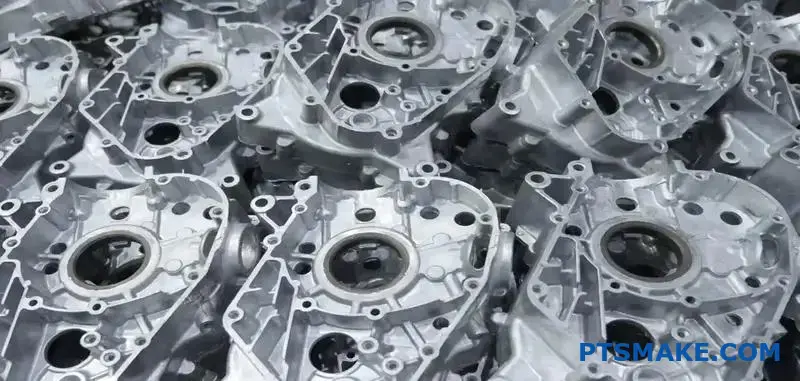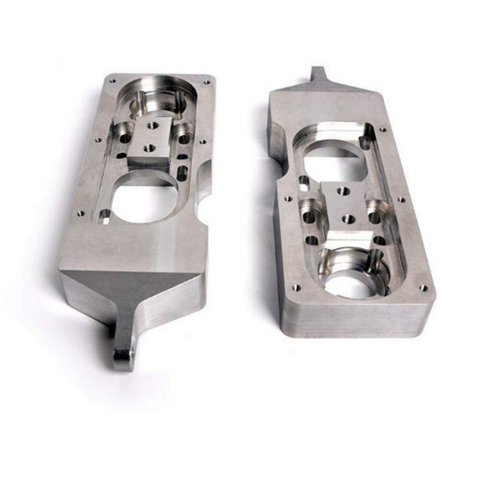Exactly How Aluminum Foundries Add To Different Industries: A Comprehensive Summary
Aluminum shops function as important suppliers throughout several fields, consisting of vehicle, aerospace, building and construction, and electronic devices. They produce elements that are not only lightweight but additionally long lasting, boosting the performance of different items. With innovative spreading methods and a commitment to sustainability, these shops are adapting to fulfill evolving sector demands. As they innovate, the effect of aluminum spreadings on different applications elevates crucial questions concerning the future of production. What exists in advance for this vital industry?
The Function of Aluminum Foundries in the Automotive Industry
As the auto industry progressively accepts light-weight products to improve fuel efficiency and efficiency, light weight aluminum shops play a critical function in this advancement. These centers concentrate on the production of aluminum castings, which are crucial components in modern vehicles. By offering high-strength, lightweight components, light weight aluminum factories make it possible for suppliers to lower the overall weight of lorries, eventually causing improved fuel economic situation and reduced exhausts.
Aluminum's resistance to rust even more boosts car long life, making it an eye-catching option for automakers. Foundries utilize sophisticated methods such as die casting and sand casting to develop exact and complex components, guaranteeing that they satisfy strict industry criteria. Furthermore, the capability to reuse aluminum successfully adds to a more lasting manufacturing procedure. As the automotive sector continues to innovate, aluminum factories will stay essential in supplying the products needed for the future generation of cars, supporting both efficiency and environmental objectives.

Aerospace Applications of Aluminum Castings
Light weight aluminum castings are essential to the aerospace market, providing a combination of light-weight toughness and longevity that is critical for airplane performance. These castings are made use of in different elements, such as engine parts, architectural frames, and touchdown gear, where weight decrease is important for gas efficiency and total safety and security. The flexibility of aluminum enables complicated geometries that enhance aerodynamic effectiveness while keeping architectural honesty.
Improvements in casting technologies have actually improved the accuracy and surface area coating of aluminum elements, minimizing the requirement for substantial post-processing. This performance not just accelerates production timelines but also lowers prices, making light weight aluminum an eye-catching choice for manufacturers. The deterioration resistance of light weight aluminum guarantees durability and reliability in rough operating environments, additionally developing its role in aerospace applications. As the market evolves, aluminum castings remain to be an essential product, driving development and supporting the development of next-generation aircraft.
Construction Sector Technologies Through Light Weight Aluminum
The building and construction industry has actually progressively taken on light weight aluminum as a result of its light-weight residential properties and versatility, paralleling its effective applications in aerospace. Technologies in aluminum layout have actually resulted in stronger, a lot more effective structures, making it possible for architects and contractors to check out brand-new possibilities. The material's resistance to rust and reduced maintenance needs make it especially appealing for both business and property projects.
Light weight aluminum's versatility assists in the development of complex layouts, permitting for aesthetic improvements that were previously difficult with conventional products. Prefabrication techniques have actually likewise developed, using light weight aluminum to lower construction time and costs significantly. Additionally, the energy performance of aluminum systems-- such as home window frameworks and roof-- adds to lasting building practices, straightening with contemporary environmental standards. As the construction sector proceeds to accept these improvements, aluminum's duty is anticipated to broaden, driving additional advancement and contributing to the advancement of resistant infrastructures.
Electronics and the Demand for Lightweight Aluminum Components
With the quick advancement of innovation, the need for light-weight light weight aluminum parts in the electronics industry has risen. As tools end up being much more mobile and portable, manufacturers look for products that offer both longevity and weight decrease. Aluminum, with its outstanding strength-to-weight ratio, has become a recommended selection for components such as cases, heat sinks, and structural supports.
Using light weight aluminum not only boosts product performance yet also adds to power efficiency, as lighter tools need much less power throughout procedure. Furthermore, light weight aluminum's superb conductivity makes it perfect for electronic applications, making sure effective heat dissipation and reducing the risk of overheating.
As consumer preferences change towards light-weight and sleek devices, light weight aluminum shops play an essential duty in fulfilling the developing demands of the electronic devices market (Aluminum Foundry). Their capacity to produce visit this page high-quality and exact light weight aluminum components supports innovation, making it possible for makers to push the borders of style and performance
Lasting Practices in Light Weight Aluminum Foundries
As the electronics industry progressively focuses on sustainability, light weight aluminum shops are adapting their methods to align with these ecological goals. Many factories are implementing reusing programs that redeem aluminum scrap, greatly minimizing the requirement for basic materials and reducing waste. By utilizing energy-efficient innovations, these facilities are lowering their carbon footprint; for circumstances, utilizing electric heating systems rather than conventional gas-fired ones can cause considerable power savings.
Additionally, light weight aluminum foundries are spending in water preservation measures, such as closed-loop systems that reuse water made use of in cooling processes. These techniques not just lower water intake but likewise minimize the environmental effect related to wastewater discharge. Lots of shops are discovering renewable energy resources, such as solar and wind power, to meet their power needs sustainably. Via these campaigns, aluminum factories exemplify a dedication to ecological stewardship while proceeding to meet the demands of the electronic devices market.
Future Trends in Aluminum Shop Technologies
Arising innovations are poised to transform aluminum foundries, boosting performance and item high quality while advancing sustainability efforts. Advancements such as expert system and maker understanding are expected to optimize production processes by predicting tools failings and enhancing resource allocation. The assimilation of advanced robotics will simplify procedures, minimizing labor expenses and lessening human error.
Additive manufacturing, or 3D printing, is additionally acquiring traction, allowing the manufacturing of complicated geometries that were previously unattainable with traditional approaches. This shift can lead to considerable material financial savings and lowered waste. In addition, wise foundries using IoT (Web of Things) innovations will enable real-time surveillance and data evaluation, promoting aggressive decision-making.
The fostering of cleaner melting innovations and recycling strategies will certainly further lower the environmental footprint of light weight aluminum foundries, making them more sustainable. Jointly, these fads signify a future where light weight aluminum shops can run with better performance and obligation.
Often Asked Concerns
What Are the Ecological Impacts of Light Weight Aluminum Foundries?

Just How Do Foundries Make Certain Quality Assurance in Light Weight Aluminum Spreading?
Factories ensure high quality control in light weight aluminum spreading by executing rigorous inspection processes, making use of sophisticated technology, conducting routine product screening, and sticking to industry standards, therefore preserving consistency and dependability in their completed products. Aluminum Casting Company.
What Is the Average Life-span of Aluminum Cast Components?
The average life-span of aluminum cast components usually varies from 10 to 50 years, depending on aspects such as environmental problems, use, and maintenance. Appropriate treatment resource can considerably improve their toughness and efficiency in time.
Just How Are Light Weight Aluminum Alloys Selected for Details Applications?
Aluminum alloys are picked based on variables such as strength, deterioration resistance, weight, and thermal conductivity. Engineers evaluate the specific requirements of applications to determine one of the most suitable alloy for finest efficiency and resilience.
What Are the Security Laws for Light Weight Aluminum Factory Employees?
Security laws for light weight aluminum shop employees consist of personal safety tools mandates, ventilation demands, exposure limitations to harmful products, and protocols for managing liquified metal. Compliance warranties worker safety and lessens wellness dangers related to factory operations.
As the automobile sector increasingly accepts lightweight products to enhance fuel performance their website and performance, aluminum shops play an important duty in this advancement. As consumer preferences change in the direction of streamlined and lightweight gadgets, aluminum shops play a vital function in fulfilling the evolving demands of the electronic devices industry. As the electronic devices industry significantly focuses on sustainability, light weight aluminum shops are adjusting their practices to straighten with these ecological goals. Lots of factories are carrying out reusing programs that redeem light weight aluminum scrap, considerably lowering the requirement for raw products and reducing waste. Safety policies for light weight aluminum factory employees consist of personal protective devices mandates, air flow needs, direct exposure restrictions to harmful materials, and procedures for handling liquified steel.